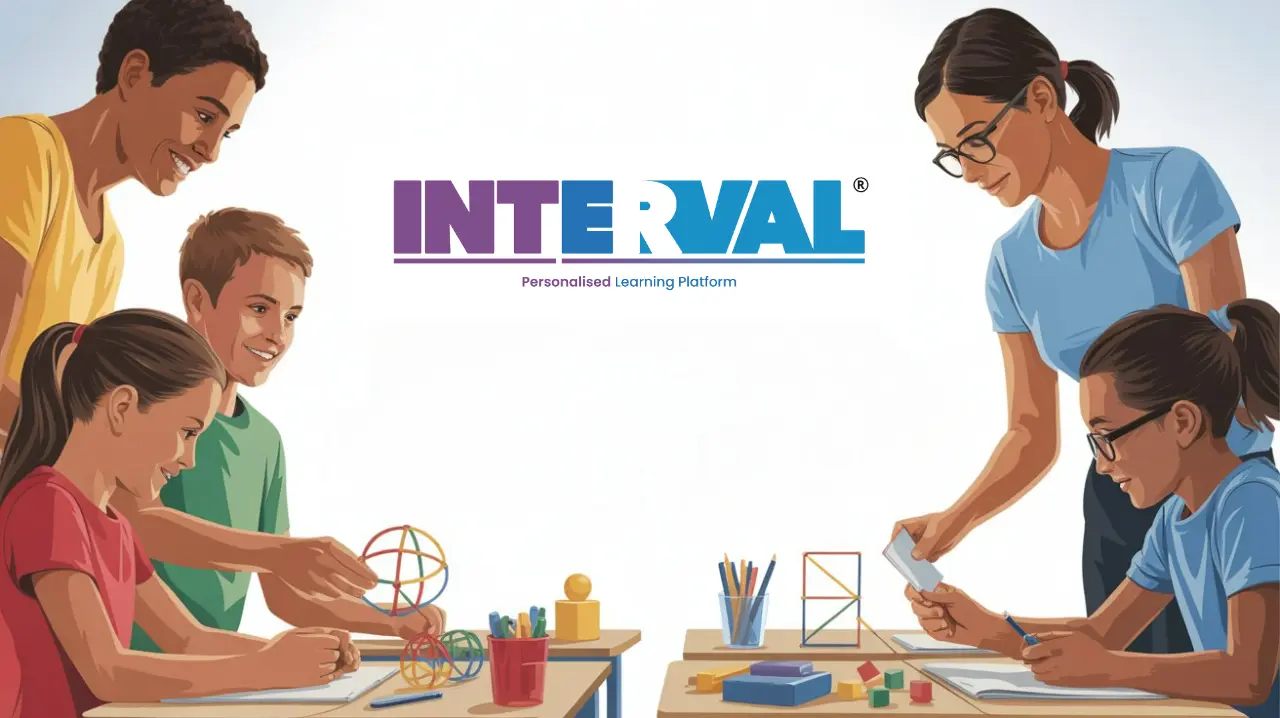How to Help Weak Students Improve in Maths: A Step-by-Step Guide




Many parents worry when their child struggles in maths, but the truth is any child can improve with the right guidance. Maths becomes difficult only when the basics are not clear.
This guide explains how to help weak students in maths in a simple, step-by-step way. It also shares practical tips that parents and teachers can use at home or school.
Here are the most common reasons students struggle:
Every one of these problems can be fixed with the right support.

Here are simple, effective methods parents can use at home:
Many weak students struggle because their foundation is shaky.
Check these basic skills:
If these are weak, the child needs a foundation programme like Interval Learning’s Foundation Program to rebuild confidence.
Do not give too many topics together. Break maths into small, doable steps.
For example:
This makes maths easier and fun.
10–15 minutes of practice a day is far more effective than 2 hours once a week.
Weak students improve faster when they feel safe, not pressured.
Even one correct step is progress—appreciation builds confidence.
Here is a step-by-step method that works for weak students:
Check which topics the child finds difficult.
For example:
If a child is in Class 7 but basic addition is weak, start from Class 3 concepts.
This is normal and necessary.
Drawings, blocks, diagrams, and simple language help struggling children understand faster.
Weak students should first practise with help, then independently.
Short tests help track improvement and improve confidence.
Here are simple study methods weak students can follow:
Task | Time | Benefit |
| Revise basics | 10 min | Strengthens foundation |
| Learn a new concept | 15 min | Slow and easy learning |
| Solve 3–5 questions | 15 min | Builds confidence |
| Review mistakes | 5 min | Helps improve |
Choose books that explain step-by-step instead of giving only formulas.
Understanding + practice = success in maths.
Understanding the reason behind a step makes maths easy.
Here are simple support methods parents can give:
This structured support helps children feel safe and motivated.
Improving maths basics is the foundation of long-term success.
Problem Students Face | Why It Happens | Easy Fix |
| Confusion in word problems | Weak reading skills | Break into steps, underline keywords |
| Slow calculation | Weak number sense | Practice mental maths 10 min daily |
| Forgetting formulas | No concept understanding | Teach meaning + examples |
| Fear of maths | Past scolding/pressure | Positive environment + appreciation |
| Poor basics | Gaps from early classes | Start foundation rebuilding |
These habits create long-term confidence.
A foundation programme helps because:
Interval Learning offers Foundation Programme designed for weak and struggling students.
Interval Learning focuses on understanding, not memorising which is exactly what weak students need.
Every child deserves to learn maths with confidence, clarity, and comfort. When weak basics are corrected gently and concepts are explained in simple language, even struggling students begin to enjoy learning again.
At Interval Learning, we focus on building strong basics first, because once the foundation is clear, every new topic becomes easier. Children get patient support, step-by-step practice, and lots of encouragement. This helps remove fear, improve understanding, and make maths feel manageable again.
Give your child the learning support they truly need.
Start Your Child’s Foundation Journey Today with Interval Learning’s Online Foundation Programme.
Get a free assessment and talk to our academic consultant to find the right foundation plan for your child.
Begin the Foundation Programme at Interval Learning!
Slow calculation, confusion in simple problems, difficulty remembering steps, and fear of maths classes are early signs. If these appear, the child may need basic support and revision.
Most students memorise formulas without understanding the concept behind them. When children learn “why” a formula works, they remember it naturally.
Yes, it is very common. Many Class 6–10 students have gaps from Classes 1–4. Fixing these basics is necessary and completely normal.
Appreciate small successes, avoid scolding, and use simple practice methods. Confidence grows when children feel safe and supported.
If the child struggles with basic concepts, a foundation programme is more effective than regular tuition because it strengthens the core skills first.
Interval Learning teaches slowly, clearly, and step by step. Our foundation programme focuses on fixing basics first, which helps even very weak students improve steadily.
We assess the child’s basics, monitor weekly improvements, and update parents regularly. This helps ensure the child stays on the right path.
Yes. We support students from primary classes to higher classes who need help with basic concepts and confidence-building.
Yes. Once the basics are strong, school lessons automatically become easier. Many children at Interval Learning show quick improvement in marks within a few weeks.